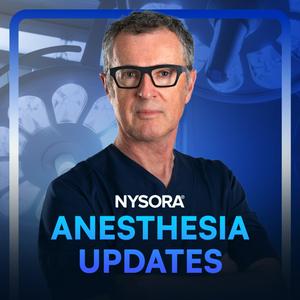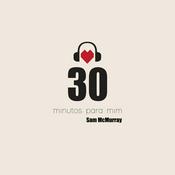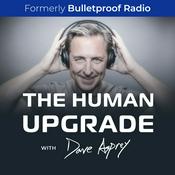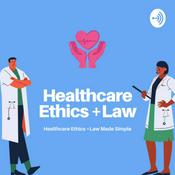74 episódios
- Neuraxial anesthesia has long been associated with better outcomes in total hip and knee arthroplasty—but does that advantage still hold in modern practice? In this episode, we discuss the main findings from new large-scale data showing that neuraxial anesthesia continues to reduce perioperative complications, even as anesthesia techniques and patient populations evolve.
Where else to find us:
Web- http://www.nysora.com
Instagram- instagram.com/nysora.inc/
LinkedIN- linkedin.com/company/nysora-inc/
Facebook- facebook.com/nysora
Twitter- x.com/nysora
TikTok- tiktok.com/@nysora_inc
---------------------------------------------------------
#nysora #regionalanesthesia #anesthesia
Disclaimer: Medicine is an ever-changing science. As new research and clinical experience broaden, changes in treatment and drug therapy are required. The authors and publishers have checked with sources believed to be reliable in efforts to provide accurate information within the available or accepted standards of care. However, given the possibility of human error or changes in medical practice, neither the authors nor the publisher, nor any other party involved in the preparation of this platform warrants that the information contained herein is in every aspect accurate or complete, and they disclaim all responsibility for any errors or omissions for the results obtained from the use of the information contained in this work. Readers are advised to confirm the information contained herein with other sources. For example, readers are advised to check the product information of each drug mentioned, and that any information contained on NYSORA's Podcast is accurate. - Motor-sparing regional anesthesia is the backbone of modern total knee arthroplasty analgesia. But posterior knee pain remains a blind spot. In this episode, we discuss the main findings from new randomized trial data on whether adding a popliteal plexus block to a femoral triangle block actually moves the needle, on opioids, pain, and mobility.
Where else to find us:
Web- http://www.nysora.com
Instagram- instagram.com/nysora.inc/
LinkedIN- linkedin.com/company/nysora-inc/
Facebook- facebook.com/nysora
Twitter- x.com/nysora
TikTok- tiktok.com/@nysora_inc
---------------------------------------------------------
#nysora #regionalanesthesia #anesthesia
Disclaimer: Medicine is an ever-changing science. As new research and clinical experience broaden, changes in treatment and drug therapy are required. The authors and publishers have checked with sources believed to be reliable in efforts to provide accurate information within the available or accepted standards of care. However, given the possibility of human error or changes in medical practice, neither the authors nor the publisher, nor any other party involved in the preparation of this platform warrants that the information contained herein is in every aspect accurate or complete, and they disclaim all responsibility for any errors or omissions for the results obtained from the use of the information contained in this work. Readers are advised to confirm the information contained herein with other sources. For example, readers are advised to check the product information of each drug mentioned, and that any information contained on NYSORA's Podcast is accurate. - Opioid-free anesthesia sounds appealing, but does it actually improve outcomes? In this episode, we discuss the main findings from a clinical focus review in Anesthesiology by Shanthanna et al. and discuss why avoiding opioids altogether may add complexity without clear benefit. The real win isn’t “opioid-free,” it’s opioid-sparing, procedure-specific, and regional-first anesthesia. Evidence over ideology.
Where else to find us:
Web- http://www.nysora.com
Instagram- instagram.com/nysora.inc/
LinkedIN- linkedin.com/company/nysora-inc/
Facebook- facebook.com/nysora
Twitter- x.com/nysora
TikTok- tiktok.com/@nysora_inc
---------------------------------------------------------
#nysora #regionalanesthesia #anesthesia
Disclaimer: Medicine is an ever-changing science. As new research and clinical experience broaden, changes in treatment and drug therapy are required. The authors and publishers have checked with sources believed to be reliable in efforts to provide accurate information within the available or accepted standards of care. However, given the possibility of human error or changes in medical practice, neither the authors nor the publisher, nor any other party involved in the preparation of this platform warrants that the information contained herein is in every aspect accurate or complete, and they disclaim all responsibility for any errors or omissions for the results obtained from the use of the information contained in this work. Readers are advised to confirm the information contained herein with other sources. For example, readers are advised to check the product information of each drug mentioned, and that any information contained on NYSORA's Podcast is accurate. - Chronic widespread pain isn’t just a quality-of-life issue; it may be an early warning sign for cognitive decline. In this episode, we discuss the main findings from new longitudinal evidence linking widespread pain to mild cognitive impairment, dementia risk, brain structural changes, and inflammation, and what this means for clinicians today.
Where else to find us:
Web- http://www.nysora.com
Instagram- instagram.com/nysora.inc/
LinkedIN- linkedin.com/company/nysora-inc/
Facebook- facebook.com/nysora
Twitter- x.com/nysora
TikTok- tiktok.com/@nysora_inc
---------------------------------------------------------
#nysora #regionalanesthesia #anesthesia
Disclaimer: Medicine is an ever-changing science. As new research and clinical experience broaden, changes in treatment and drug therapy are required. The authors and publishers have checked with sources believed to be reliable in efforts to provide accurate information within the available or accepted standards of care. However, given the possibility of human error or changes in medical practice, neither the authors nor the publisher, nor any other party involved in the preparation of this platform warrants that the information contained herein is in every aspect accurate or complete, and they disclaim all responsibility for any errors or omissions for the results obtained from the use of the information contained in this work. Readers are advised to confirm the information contained herein with other sources. For example, readers are advised to check the product information of each drug mentioned, and that any information contained on NYSORA's Podcast is accurate. - In this episode of NYSORA Updates in Anesthesiology, Dr. Hadzic reveals why the stellate ganglion block (SGB) has re-emerged as a hot topic in perioperative medicine. Drawing on a landmark 2025 narrative review from MD Anderson published in the British Journal of Anaesthesia, we explore what SGB can—and cannot—realistically offer today. From arrhythmia control and postoperative recovery to immune modulation and risk considerations, this episode delivers a balanced, evidence-based perspective to help anesthesiologists decide when SGB truly belongs in modern practice.
Where else to find us:
Web- http://www.nysora.com
Instagram- instagram.com/nysora.inc/
LinkedIN- linkedin.com/company/nysora-inc/
Facebook- facebook.com/nysora
Twitter- x.com/nysora
TikTok- tiktok.com/@nysora_inc
---------------------------------------------------------
#nysora #regionalanesthesia #anesthesia
Disclaimer: Medicine is an ever-changing science. As new research and clinical experience broaden, changes in treatment and drug therapy are required. The authors and publishers have checked with sources believed to be reliable in efforts to provide accurate information within the available or accepted standards of care. However, given the possibility of human error or changes in medical practice, neither the authors nor the publisher, nor any other party involved in the preparation of this platform warrants that the information contained herein is in every aspect accurate or complete, and they disclaim all responsibility for any errors or omissions for the results obtained from the use of the information contained in this work. Readers are advised to confirm the information contained herein with other sources. For example, readers are advised to check the product information of each drug mentioned, and that any information contained on NYSORA's Podcast is accurate.
Mais podcasts de Saúde e fitness
Podcasts em tendência em Saúde e fitness
Sobre Anesthesia Updates
Anesthesia Updates by NYSORA is your go-to podcast for staying at the forefront of anesthesiology. Hosted by Dr. Hadzic and the NYSORA educational team, each 10-15 minute episode reviews the latest developments, publications, and clinical trends, so you can stay ahead without wading through lengthy research articles. Whether it's the newest guidelines, emerging practices, or essential updates, this podcast delivers highly relevant information that will keep your practice on the cutting edge—one episode at a time.
Sítio Web de podcastOuve Anesthesia Updates, A Invenção do Amor e muitos outros podcasts de todo o mundo com a aplicação radio.pt

Obtenha a aplicação gratuita radio.pt
- Guardar rádios e podcasts favoritos
- Transmissão via Wi-Fi ou Bluetooth
- Carplay & Android Audo compatìvel
- E ainda mais funções
Obtenha a aplicação gratuita radio.pt
- Guardar rádios e podcasts favoritos
- Transmissão via Wi-Fi ou Bluetooth
- Carplay & Android Audo compatìvel
- E ainda mais funções


Anesthesia Updates
Leia o código,
descarregue a aplicação,
ouça.
descarregue a aplicação,
ouça.





































